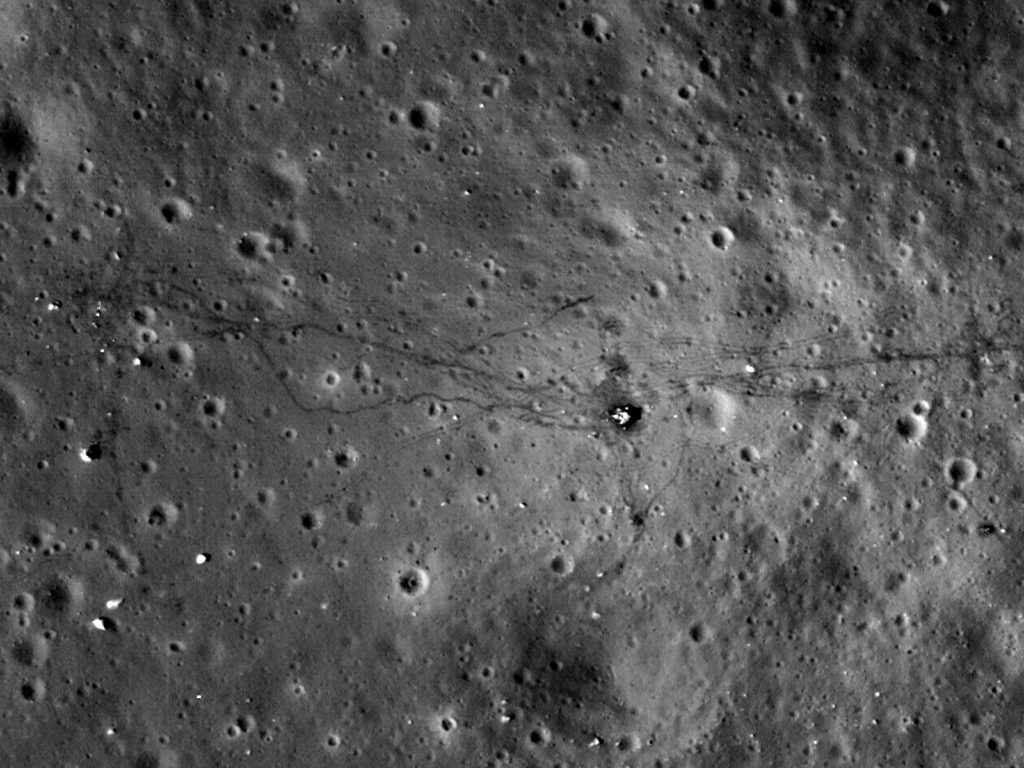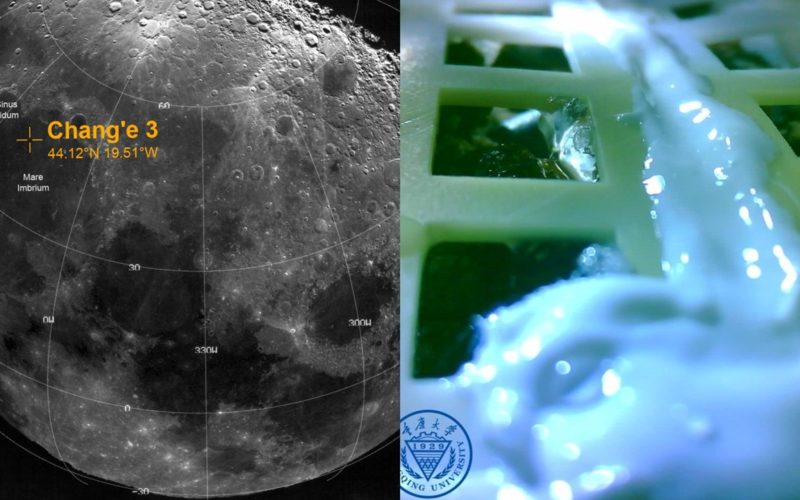The prospect of owning lunar land was mildly intriguing. Yet the fact that earthly cotton plants grow on the moon as we speak is far more exciting. It is the era of Moon crops folks and the Chinese have beat the world to it! China was the first nation to put a spacecraft on the far side of the moon earlier this month. Yet, it seems China National Space Administration’s probe Chang’e 4 had a special mission upon touch down.
The lunar probe carried seeds to the far side of the moon in an effort to grow plants on the surface for the very first time! Fortuitously, the latest reports show that the seeds have germinated!
China’s space agency released a picture of a cotton seed sprouting in a biosphere on the Moon. See the thrilling tweet for yourself!
First in human history: A cotton seed brought to the moon by China's Chang'e 4 probe has sprouted, the latest test photo has shown, marking the completion of humankind's first biological experiment on the moon pic.twitter.com/CSSbgEoZmC
— People's Daily, China (@PDChina) January 15, 2019
Apart from cotton seeds, Chang’e 4 has carried potato seeds, yeast and fruit fly eggs to the moon. Each of these is insulated inside a protective biosphere as the Chinese lander-rover conducts scientific explorations on the lunar surface.
Scientists intend it to gather as much data as possible from the relatively unexplored side of the moon. They hope for new insights into the satellite’s makeup, as well as its formation and evolution. Chinese officials even confirmed that they hope to cooperate with NASA on sharing research.
The United States government and NASA had hitherto prohibited from working with China’s space agency and state-owned companies. Yet at a news conference this week, Wu Yanhua, Deputy Director of CNSA (China National Space Administration) shared exciting news. He said the two space agencies shared data related to the recent moon landing. Wu went on to add that NASA offered to help China observe Chang’e 4’s touchdown using the American space agency’s Lunar Reconnaissance Orbiter reports UPI.

NASA has yet to confirm the cooperation, but officials have previously acknowledged sharing information. “When they do a science mission to the moon, we’re hopeful they will be able to share with us the data they receive, and when we do a mission to the moon, we can share data with them,” NASA Administrator James Bridenstine told Quartz last year.
“Understanding and characterizing the Moon and doing that kind of science is in the interest of all humanity. It’s not something any one country should try to retain for itself,” Bridestine added.
In fact, the success of China’s experiment has prompted space and international affairs analysts muse that the nation’s foray into lunar exploration could catalyze a new space race of sorts!




